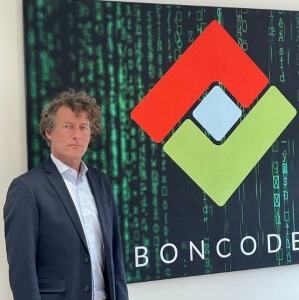
In the periphery of V.O.’s field of expertise – protecting intellectual property – there are several professional service providers who can help your company. Especially when your company is still in its developing stage, such help can increase your company’s value. After all, ultimately this is also the goal of your intellectual property. Such service providers include software service providers, tax attorneys and accountants. Together they constitute the ‘ecosystem’ and contribute to the success of your innovative company. In this section, we shed light on a number of these services. This time: the assessment of your business software.
Scalability
In the assessment of the quality of a business, scalability is an important indicator for the quality and the appraisal of a business. The software system can be a limiting factor in all this.
Requiring large investments, these systems at the same time are often adaptable to a limited extent only. These systems require large investments. At the same time, these systems are often limited in their adaptability. Then it is useful to be able to measure and manage the quality of software. Especially when the company’s patents have been materialized in the software. ISO25010, a standard for software quality, enables you to do so.
Product quality and suitability for use
ISO25010 comes in useful in a due diligence audit in which the question can be asked whether your software systems are future-proof. In other words: is the software a modern piece of technology that can easily be adapted in accordance with the company’s growth, or will substantial investments be required in order for it to become scalable?
The ISO25010 standard distinguishes between Product Quality and Suitability for Use. Product Quality indicates to what extent the software is properly built, often summarized as the technical quality of a system. Suitability for Use indicates whether the system actually does what it is supposed to do, often referred to as functional quality.
“Organizations usually are automatically attentive to functional quality. After all, if the system doesn’t do what it should do, users will start complaining. Technical quality is less visible, if at all, to software system owners. They’ll often have to rely on the opinions of experts, or they count the number of bugs reported to them. There is a better way, however. Analysis techniques are available for continuity testing of the software code, the ‘sources’,” says Jan Willem Klerkx, CEO at BonCode, a company specializing in software quality issues consultancy.
Building inspection for software systems
Companies such as BonCode have tools for the continuity testing of the software’s static source code. A tool measures fundamental things such as the size of the system, the size of the modules in the system, whether a logical coherence can be discovered, whether many duplicates of the codes can be found, and whether coding standards are followed (or violated).
Says Mr. Klerkx: “By assessing these measurements and relating them to previous measurements, we’re able to provide a neutral and objective picture of the code’s quality. Particularly in combination with an expert opinion assessing whether the technology is an understandable choice given the application and market. That way, a measurement results in an independent opinion on a software system. A dashboard filled with measurements is a step up from a PowerPoint full of opinions. It’s a kind of building inspection, not for buildings, but for software systems.”
Other applications of source code analysis technologies
In addition to once-only inspections, statistical code analysis can also be used for monitoring large projects. By measuring, and presenting weekly, the production of software teams, a quality system is created. That way, software engineers will know whether the software they produced has the expected quality and the client is kept up to speed. He’ll be emailed a weekly report: a score on a scale from 0 to 100 indicating performance. Without any knowledge of software, he’ll still be in control.
Decisive
For companies wishing to successfully market their inventions, the quality of a software system is of vital importance. In addition to sufficient potential of the intellectual property already present, it may for instance be decisive for investors who want to furnish fresh capital.
Protect and patent your software or app
Are you curious about the ways software can be protected? We’ve gathered all the information on this page. Do you need assistence in protecting your software or app? Our experts will be happy to advise you.

